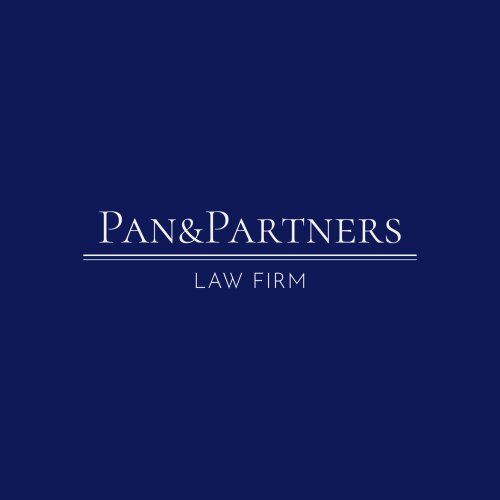Best Bankruptcy & Debt Lawyers in Besiktas
Share your needs with us, get contacted by law firms.
Free. Takes 2 min.
List of the best lawyers in Besiktas, Turkey
Turkey Bankruptcy & Debt Legal Articles
Browse our 1 legal article about Bankruptcy & Debt in Turkey written by expert lawyers.
- Navigating Corporate Debt in Turkey: A Guide for Businesses
- In today's challenging economic climate, many businesses in Turkey find themselves struggling with commercial debt. Whether your company is dealing with business loans, trade liabilities, or other financial obligations, understanding the available debt relief options is crucial for regaining financial stability and ensuring operational viability. This guide explores the various... Read more →
About Bankruptcy & Debt Law in Besiktas, Turkey
Bankruptcy and debt law in Besiktas, Turkey, falls under the broader national framework that governs financial insolvency and debt recovery processes throughout the country. The main regulatory body overseeing these matters is the Turkish Commercial Code, which provides mechanisms for individual and corporate entities facing financial distress. The goal is to balance creditor rights with debtor protections, promoting equitable resolutions. Local courts in Besiktas play a crucial role in interpreting and applying these laws to specific cases, taking into account both statutory and case law precedents.
Why You May Need a Lawyer
There are several scenarios where individuals and businesses in Besiktas might require legal assistance with bankruptcy and debt issues. Common situations include an inability to meet financial obligations, creditor harassment, need for debt restructuring, foreclosure threats, or navigating complex bankruptcy filings. A lawyer who specializes in this area can provide essential guidance, ensuring that your rights are protected and that you understand your options. They can also help negotiate with creditors, develop repayment plans, and represent you in court if necessary.
Local Laws Overview
Key elements of bankruptcy and debt law in Turkey include the process of bankruptcy declaration, which can be initiated by either the debtor or creditors. Turkish law provides for two main types of bankruptcy: voluntary and involuntary. Additionally, laws pertaining to debt restructuring jointly benefit entities in financial distress, allowing them to redesign payment terms. The Bankruptcy and Enforcement Law governs the enforcement procedures, offering a framework for both liquidation and concordat (debt restructuring agreements). Local Besiktas courts ensure these laws are applied consistently and fairly, while also considering any local business practices and customary norms.
Frequently Asked Questions
What happens when I file for bankruptcy in Turkey?
Upon filing for bankruptcy, an automatic stay is typically issued, halting most collection activities against you. A trustee may be appointed to oversee the case, and your assets could be liquidated to satisfy creditors.
Can I keep any of my assets?
Some assets may be exempt under Turkish law, allowing you to retain certain personal and household items. The specifics depend on current legislation and individual circumstances.
How long does the bankruptcy process take?
The length of the bankruptcy process varies. It can be relatively short for straightforward cases but may take longer for complex situations involving numerous creditors or legal disputes.
What is the difference between liquidation and concordat?
Liquidation involves selling the debtor's assets to pay creditors, while a concordat is a legal agreement to restructure debt and establish new payment terms, often allowing businesses to continue operating.
Are there alternatives to filing for bankruptcy?
Yes, alternatives such as debt restructuring, negotiation with creditors, or participating in government debt relief programs may provide solutions without formal bankruptcy proceedings.
How is creditor harassment handled?
Turkish laws protect individuals from aggressive collection practices. Any unlawful harassment by creditors can be challenged in court, potentially leading to penalties against offenders.
Can foreigners file for bankruptcy in Turkey?
Yes, foreigners residing in Turkey and involved in trade here can file for bankruptcy under the Turkish Commercial Code, provided they meet the legal requirements.
What are the costs associated with filing for bankruptcy?
Costs can include court fees, attorney fees, and potentially the costs associated with asset management and sales. These vary based on the case's complexity.
How are business debts treated differently from personal debts?
Business debts often involve additional complexities, such as shareholder obligations and business contracts, which require specialized legal strategies for resolution.
What role does mediation play in debt disputes?
Mediation is encouraged in Turkey for resolving disputes, offering a cost-effective and less adversarial alternative to litigation by fostering agreements between creditors and debtors.
Additional Resources
The following resources may be helpful for those seeking advice on bankruptcy and debt issues in Besiktas, Turkey:
- Besiktas Bar Association
- Local branches of the Turkish Justice Ministry
- Consumer Rights Associations in Turkey
- Non-profit organizations offering financial counseling
- Turkish Union of Chambers and Commodity Exchanges for business owners
Next Steps
If you need legal assistance, consider reaching out to a qualified law firm specializing in bankruptcy and debt law in Besiktas. Schedule consultations to discuss your situation, gather relevant financial documents, and develop a strategy. Engaging a knowledgeable attorney can provide clarity and help you navigate the legal complexities effectively.
Lawzana helps you find the best lawyers and law firms in Besiktas through a curated and pre-screened list of qualified legal professionals. Our platform offers rankings and detailed profiles of attorneys and law firms, allowing you to compare based on practice areas, including Bankruptcy & Debt, experience, and client feedback.
Each profile includes a description of the firm's areas of practice, client reviews, team members and partners, year of establishment, spoken languages, office locations, contact information, social media presence, and any published articles or resources. Most firms on our platform speak English and are experienced in both local and international legal matters.
Get a quote from top-rated law firms in Besiktas, Turkey — quickly, securely, and without unnecessary hassle.
Disclaimer:
The information provided on this page is for general informational purposes only and does not constitute legal advice. While we strive to ensure the accuracy and relevance of the content, legal information may change over time, and interpretations of the law can vary. You should always consult with a qualified legal professional for advice specific to your situation.
We disclaim all liability for actions taken or not taken based on the content of this page. If you believe any information is incorrect or outdated, please contact us, and we will review and update it where appropriate.
Browse bankruptcy & debt law firms by service in Besiktas, Turkey
Besiktas, Turkey Attorneys in related practice areas.











